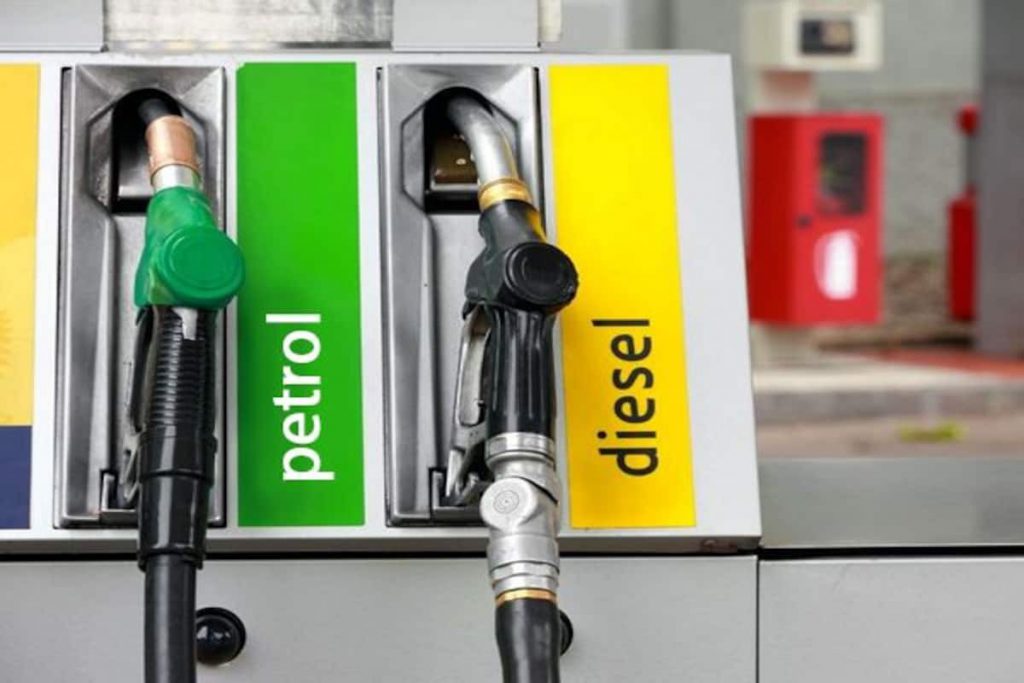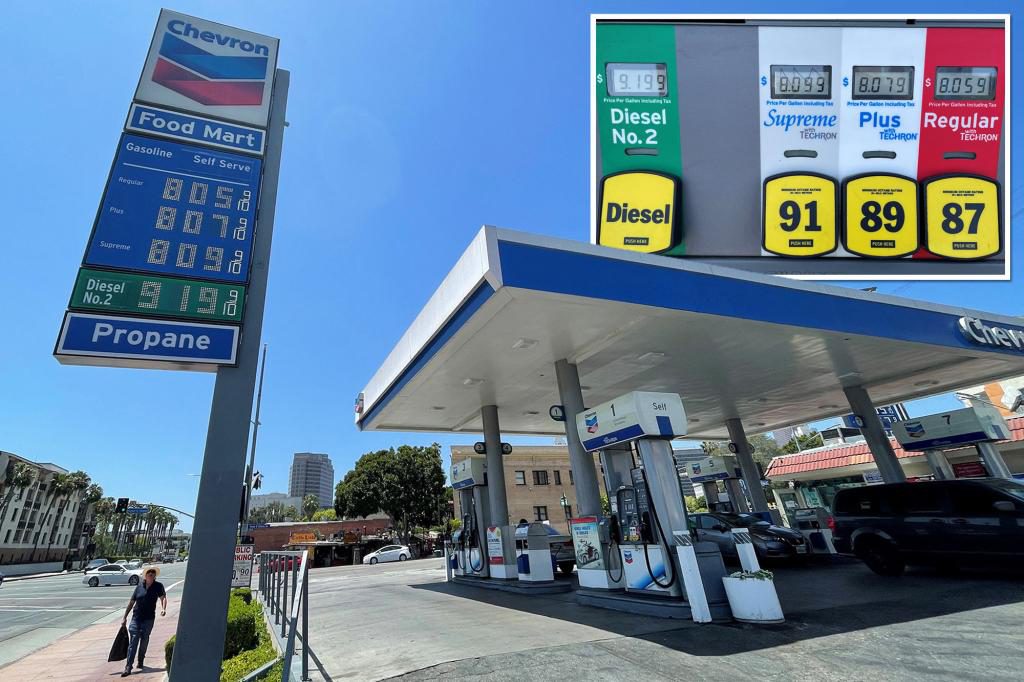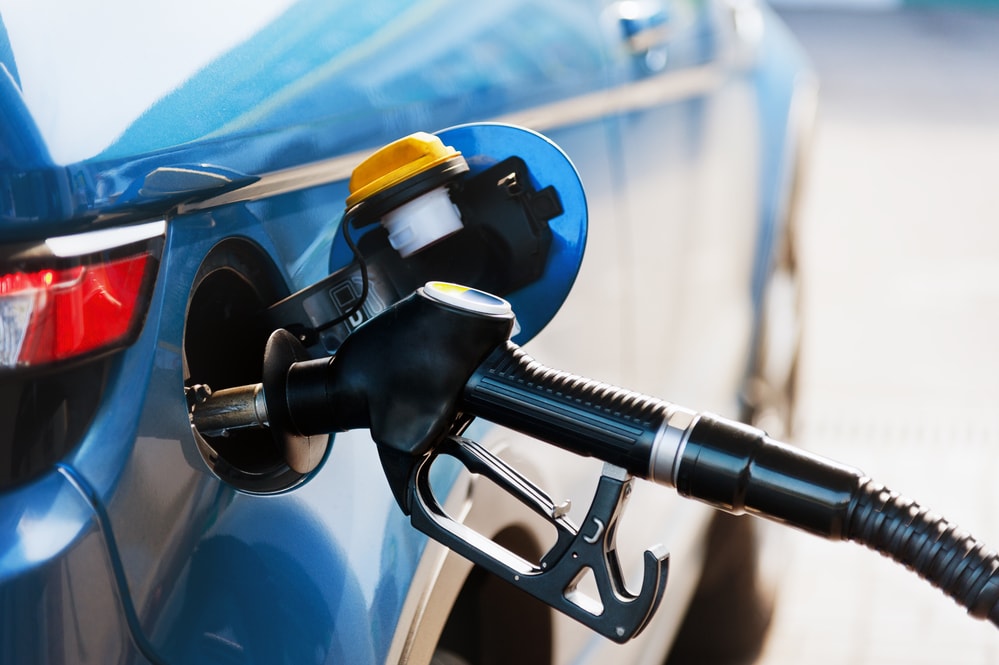If you often tend to fill your gas tank until it is full, rather than paying for a specific amount of gas in advance, you may be familiar with the thud sound that the pump makes when it shuts off after fueling. Once you hear that, you know your tank is filled up. But how does that work? How do gas pumps know when to stop automatically when it is the right time?
After you learn how gas pumps can detect when your tank is full, take a closer look at some notices before gas fueling for drivers and tips to save money when your due fuelling comes.
Contents
- What Is A Gas Pump?
- How Many Gas Pump Types Are There?
- How Do Gas Pumps Know When To Stop?
- Notices When Refueling Drivers Must Know
- Gas Fueling Tips To Save Money
- 1. Fuel up according to gas capacity
- 2. Refuel when 1/2 tank is left
- 3. Fill up car fuel in the morning
- 4. Set the meter to “0” before pumping
- 5. Compare purchases among stations
- 6. Buy gasoline by taxi wings
- 7. Do not overfill the tank with gas
- 9. Well-observe when buying gas
- 10. Boycott fraudulent gas stations
What Is A Gas Pump?
A gas pump is a machine pumping diesel, gasoline (petrol), or other fuel types into vehicles. Gas pumps nowadays are powered by electricity or gasoline engines. They come in several shapes and sizes, but all have three main parts: the pump, the nozzle, and the meter.
The mechanism of the fuel pump is to draw fuel from the station gas tank and pushes it through the nozzle and the meter. The nozzle attaches to the vehicle’s fuel tank, and the meter measures how much gas has been filled in the tank.
How Many Gas Pump Types Are There?
There are three common types of gas pumps used in gas stations:
- Infrared pumps
- Electronic pumps
- Mechanical fuel pumps
In detail, mechanical pumps are the longest-existed type of pump and use a lever to control the fuel in-flow. They perform less effectively and accurately in adding fuel than electronic pumps. They are also more prone to fuel jamming. However, they are generally cheaper than other gas pump types and easy to use for general people, especially elderly drivers.
On the other hand, electronic pumps use an electric motor to handle the gas flow. They are more accurate than mechanical pumps and can handle more range of fuels, including E85 blends up to ethanol. And not surprisingly, they are more pricey than other types of typical mechanical pumps.
At last, we have infrared pumps (or laser pumps). This kind of pump use lasers to measure the fuel volume pumped in the tank. Being the most precise type of pump and can also control a wide range of fuels, it is no argument that they have such expensive prices that go along with convenience and fueling quality.
Just a reminder, with the two pump types below, not every self-serve station will have it applied. If you want to experience or be familiar with these types of pump, check for a gas station equipped with one before heading to new areas.
How Do Gas Pumps Know When To Stop?
As basics, typical gas pumps, no matter what type, always have a sensor that detects when the fuel inside is full. This technology prevents overfilling and spilling fuel. The pump will automatically stop when it senses that the tank is full. So when you continue to pump gas after the pump has stopped, you could damage the pump or cause a spill.
If you want to understand more about the gas pump’s mechanism, pay attention to the pump nozzle. At the top of the nozzle, there will be a few milimeter small hole that can go straight to the relay inside the fuel pump nozzle. When you pump any fluid into a container, that amount of substance will push the air contained in the container out. Pouring gasoline is the same, gasoline from the nozzle flowing into the car gas tank will push back the air contained in it, and a small amout of air will flow into that small tube.
When the gas is full, the air in the fuel tank is no longer available to flow into the small tube, and the pressure in the tube changes. At this time, the relay inside the fuel pump nozzle knows that the gas is about to be full, so it will close the valve to prevent fuel from overflowing. That’s why you will see that people will pull out the gas nozzle a bit to continue pumping (space changes, more air), but if it stays like that, even if you press and release the trigger, again and again, there is still no more fuel.
This interrupt relay is only applicable when pumping gasoline into the tank. But if you hold the hose and pump it out, it will always discharge without stopping automatically.
Notices When Refueling Drivers Must Know
Below are some notices you should keep a close eye on when having gas fueling to keep you safe and enhance the gas fueling quality.
Choose the fuel type
To avoid confusion, the driver should first know the fuel type that the vehicle uses. Currently, most cars use gasoline or diesel (oil) engines. So, if you own a car or rent a self-driving one, or borrow a car from a friend before refueling, you should know if it is running on gasoline or diesel. In addition, when entering a gas station, you should note with the salesperson whether the car uses gasoline or oil to avoid pumping the wrong fuel.

The oil pump nozzle and the gasoline pump are often different, but there have been many cases of using diesel motorbikes but pumping the wrong gasoline when refueling. In this case, if the driver does not detect it in time and continues to start the vehicle, it will affect the details of the fuel system, such as the high-pressure pump and injectors, which may lead to engine overheating and heavy damage to pistons, rings, etc.
In addition to telling the petrol and oil sales staff at the fuel station, some drivers using diesel cars are even more careful to add decorative accessories to the fuel tank cap or stamp with the word “Diesel” to be careful when refueling cars.
Locate the fuel tank cap for parking
In order not to make it difficult for the petrol and oil pump staff and at the same time not have to spend a lot of time moving the car at the fuel pump station, the driver should determine the position of the fuel tank cap on the left or right side of the body.
To locate the fuel tank cap, drivers should pay close attention to the instrument panel and the arrow associated with the fuel tank symbol (as shown in the photo above). If this arrow position angle turns in any direction, the fuel tank position on the body will be located in that direction. Determining the position of the fuel and oil tank cap will help the driver to be proactive and save time in parking to refuel.
In addition, notice how to open the fuel tank cap. Because each vehicle is usually designed with a different fuel cap opening mechanism. Some cars are often designed by the manufacturer to open the fuel tank cap integrated at the foot of the driver’s seat or below the dashboard. Some other cars need to push the lid on the tank to open.
Turn off the engine before injecting fuel
Some drivers have a habit of leaving the car engine running when refueling. This act is one of the causes of the risk of fire and explosion.
When refueling a car, the amount of gasoline and oil from the pump nozzle will occupy the gasoline vapor in the tank, so the gas vapor is easy to escape. If the car engine is still operating at this time, it will continue to generate heat (due to the combustion of the fuel and air mixture) which can easily lead to fire and explosion. Therefore, according to the recommendations of some car manufacturers, before refueling, the driver should turn off the engine to avoid the risk of fire and explosion.
Do not use cell phones
Gas stations often have fire ban signs. Therefore, in addition to not smoking, drivers should also not use mobile phones while fueling the vehicle. This has been warned, but some drivers still ignore warnings. Needless to say, this ignorant action has a high risk of fire and explosion because strong phone waves may emit sparks that cause fires.
Gas Fueling Tips To Save Money
1. Fuel up according to gas capacity
Several drivers often buy gasoline according to money units. However, this way of buying will facilitate fraudulent acts due to the phenomenon of the gas jumping amount that sometimes customers can not even notice.
To avoid pickpockets in this situation, you should buy gasoline by capacity, for example, 2 or 3 liters, depending on the amount of gasoline remaining in the tank. Stealing acts often apply according to the amount of money. So if we switch to this way of gas buying, we will have a chance of escaping pickpockets.
2. Refuel when 1/2 tank is left
Because if you let the fuel tank dry, when you fill it up, the downflow of gasoline will experience greater pressure, causing the gasoline to expand in volume. When the gasoline is 1/2, the distance from the fuel hose to the place where the new gasoline falls is reduced and the pressure in the fuel tank is not as much as when the gasoline is empty.
When refueling, you should press for gasoline to flow slowly into the tank, limiting the fact that when the flow of gasoline into the tank is fast and strong, the gasoline expands more, causing a loss of the actual amount of gasoline.
Also, you should avoid evaporating gasoline by tightening the cap on the fuel tank and parking in the shade. This way, you also save on gas significantly.
>> Check more: How to Pump Your Own Gas: The Ultimate Guide for Newbies
3. Fill up car fuel in the morning
Did you know that gasoline expands or contracts depending on temperature? In the morning, when the weather is usually cool, the amount of gasoline in the tank overnight shrinks, reducing the volume, so refueling in the early morning is the most beneficial. This is the ideal time for you to buy more gas for the same amount of money when buying in the afternoon or afternoon. On the contrary, if you choose the hottest time of the day to refuel, when you pay for 10 liters of gas, you may only get 9.1-9.3 liters back, the rest is just gas.
In addition, you should not refuel when the tank truck is pumping gasoline into the tank of the gas station. When the tank truck fills the tank with a rush, increasing the pressure in the gas station’s gas tank causes the gasoline to expand. At that time, we have to buy a proportion of gasoline gas, gasoline vapor.
4. Set the meter to “0” before pumping
The reason for this act is that if there are many customers, or because they are far from the pump, many employees or you being forgetful as usual, may leave the meter at the previous pump and continue to pump. Whether this is accidental or intentional, the one who suffers will be you because there is always an error in the calculation of subtracting the price between the two pumps.
5. Compare purchases among stations
The paths or streets you pass by every day always have fixed or familiar gas stations. However, you can start a self-research to buy a certain amount of gas and then check the petrol indicator on the car to compare with the next time and different gas stations. Based on the number of liters, and the number of kilometers traveled in the purchases, you can choose the gas station that feels the most trust.

6. Buy gasoline by taxi wings
Taxi or truck drivers travel frequently, so they will have more experience with gas stations than we do. They are the heads in finding reliable gas stations because if cheated, the fixing cost can be hundreds of thousands per purchase.
7. Do not overfill the tank with gas
The less gasoline, the lighter the car, and the more fuel consumption. According to the experience of an automotive technician, in case the customer does not fill the tank with a certain amount, he is still likely to have to pay more than the actual amount of gasoline.
>> See more: The Problems of Topping Off a Gas Tank
9. Well-observe when buying gas
Pay attention to any weird or unscrupulous expression/action of gas station staff. Second, check whether the gas meter has displayed enough of the amount you need or whether the number has been frauded or not. Some gas stations have a trick to extend the gas pump line far away, making it difficult for customers to see the meter. With these kinds of issues, you should always take notice to avoid being scammed by the not-self-serving station in the middle of nowhere.
If you detect any fraud, even if there is no specific evidence, avoid that gas station in future gas purchases. In addition, you can advise relatives and friends to help them avoid pickpockets.
10. Boycott fraudulent gas stations
We are customers, so we have the right to receive gas in proportion to the money we spend. For gas stations or any other establishment, a business location that commits fraud or deceives customers, we have the right to boycott and warn other consumers against fraud. Even if there is clear and specific evidence of fraud, we can report it to the police to promptly handle such acts.
So above are some tips to help you buy gasoline without any loss. Hopefully, with these little tips, you will get the amount of gas commensurate with your money and no longer be pickpocketed by any gas station. These tips are also experiences for us to save money in a time when gas prices are increasing nowadays.
We have just scrolled through some notices on how do gas pumps know when to stop and several gas-buying tips that may be helpful to you in some cases. Have a nice day!



